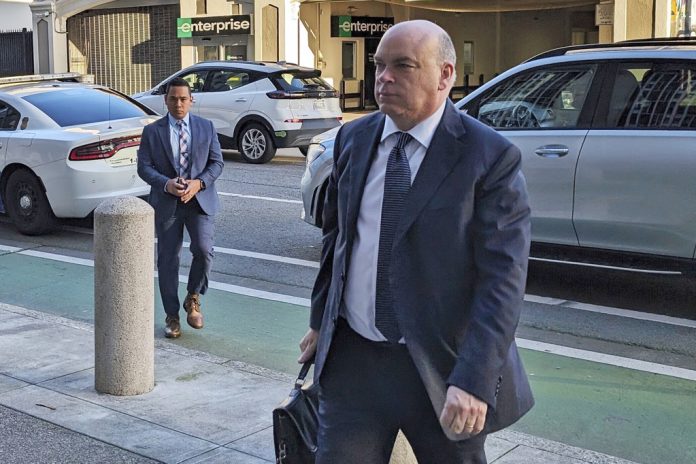Tech tycoon Mike Lynch, one of six people missing from a sunken yacht off Sicily, had been trying to move past a Silicon Valley debacle that had tarnished his legacy as an icon of British ingenuity.
Lynch, 59, struck gold when he sold Autonomy, a software maker he founded in 1996, to Hewlett-Packard for $11 billion in 2011. But the deal quickly turned into an albatross for him after he was accused of cooking the books to make the sale.
The fraud allegations resulting in Lynch being fired by HP’s then-CEO Meg Whitman and a decade-long legal battle. It culminated with him being extradited from the U.K. to face criminal charges of engineering a massive fraud against a company that shaped Silicon Valley’s zeitgeist after starting in a Palo Alto, California, garage in 1939.
Lynch steadfastly denied any wrongdoing, asserting that he was being made a scapegoat for HP’s own bungling — a position he maintained while testifying before a jury during a 2 1/2 month trial in San Francisco earlier this year. U.S. Justice Department prosecutors called more than 30 witnesses in attempt to prove allegations that Lynch engaged in accounting duplicity that bilked billions of dollars from HP.
The trial ended up vindicating Lynch, who was cleared of all charges in June. Lynch, who had remained free on $100 million bail during the trial, had pledged to return to the U,K. and explore new ways to innovate.
Although he avoided a possible prison sentence, Lynch still faced a potentially huge bill stemming from a civil cased in London that HP mostly won during 2022. Damages haven’t been determined in that case, but HP is seeking $4 billion. Lynch made more than $800 million from the Autonomy sale.
Before becoming entangled with HP, Lynch was widely hailed as a visionary who inspired descriptions casting him as the British version of Microsoft co-founder Bill Gates and Apple co-founder Steve Jobs.
Lynch, a Cambridge-educated mathematician, made his mark running Autonomy, which made a search engine that could pore through emails and other internal business documents to help companies find vital information more quickly. Autonomy’s steady growth during its first decade resulted in Lynch being awarded one of the U.K’s highest honors, the Office of the Most Excellent Order of the British Empire in 2006.
In the months leading up to the deal that would go awry, HP valued Autonomy at $46 billion, according to evidence presented at Lynch’s trial.
The trial also presented contrasting portraits of Lynch. Prosecutors painted him as an iron-fisted boss obsessed with hitting revenue targets, even if it meant to duplicity. But his own lawyers cast him as entrepreneur with integrity and a prototypical tech nerd who enjoyed eating cold pizza late at night while pondering new ways to innovate.
Source: post





